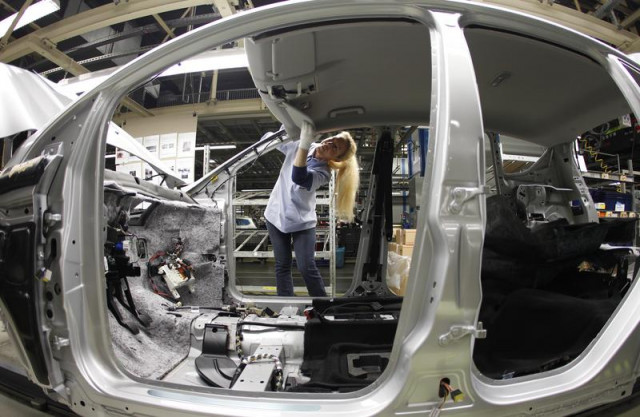Chip shortage could impact nearly one million vehicles of production in first quarter
The supply shortages were exacerbated by previous US administration’s actions to curtail technology transfers to China

A shortage of auto semiconductor chips could impact nearly one million units of global light vehicle production in the first quarter, data firm IHS Markit said on Tuesday, significantly upping a prior forecast.
The firm on February 3 estimated the issue would impact 672,000 vehicles through March 30. IHS Markit said it still expects the majority of volume can be recovered in the remainder of 2021.
A surge in demand for electronics as more people stay home due to the coronavirus pandemic has led to shortages of semi-conductors, forcing the carmakers to cut production just at a time when sales have recovered more quickly than expected.
Focus on chip shortage hurting production as Japanese automakers report results
Japanese automakers Toyota, Nissan, and Honda report third-quarter results last week buoyed by recovering demand in China and the United States, but a global chip shortage has clouded their earnings outlook.
“Chip shortage seems to have a larger impact on Japanese and Europeans as the shortage is mainly caused by NXP Semiconductors and Infineon,” said James Hong, an analyst at Macquarie Capital, adding that Korean rivals have a larger number of local suppliers and a healthier chip stockpile.
Apple targets car production by 2024 and eyes 'next level' battery technology
Chipmakers who supply auto companies outsource most of their production to contract manufacturers like Taiwan’s TSMC, which analysts say, often prioritise orders from electronics clients who account for nearly all their revenue.
The supply shortages were exacerbated by the previous US administration’s actions to curtail technology transfers to China, which hit Chinese chip factories, as well as by a fire at a chip plant in Japan and coronavirus lockdowns in Southeast Asia.



















COMMENTS
Comments are moderated and generally will be posted if they are on-topic and not abusive.
For more information, please see our Comments FAQ